Web browser is one of the most important components in World Wide Web architecture. It works in the user’s side or the client’s side as the interpreter of data which is getting transferred through the internet. The main types of data interpreted by the browser are HTML, JAVA Script and CSS. Other than that modern browsers are capable of displaying many advanced types of data with the aid of third party plug-ins such as Flash and Apple quick time which deliver an aesthetic browsing experience to their users.
The battle of web browsers dates back to 1995, in the time Microsoft internet explorer started competing with Netscape Navigator. From that time until now many browsers came in to battle and some of them manage to mark their territory strongly while some of them lost and retreated. The major contributing factor to win this browser battle was always the speed of loading and data interpretation.
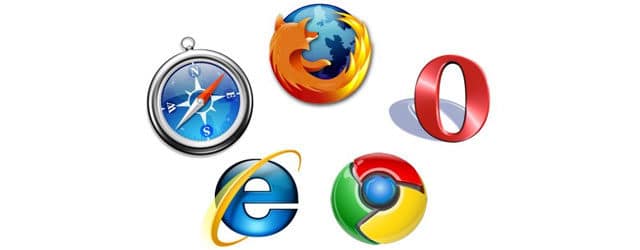
In the new millennium, battle of the browsers has become even competitive and lots of companies are showing their colors to be the first. In this article I’m trying to do a historical data analysis of battle of the browsers and its circumstances.
Early Time
The Very First One – Nexus
Back in 1990 the very early version of web browser came to the picture. In was called as WorldWideWeb and then change the name to Nexus. Today everyone knows it as Nexus. This web browser was capable of interpreting basic HTML and style sheets only in text formats. Further, most of the Common things that we do with browsers were there even with Nexus including spellchecking, next/previous buttons and file download.
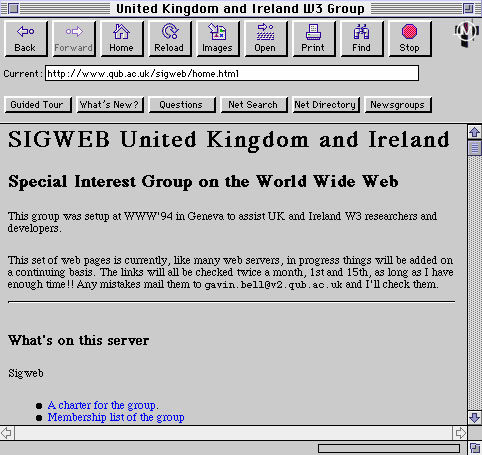
Nexus Browser
This is the time just before internet boom. There were no many internet users and most of its users were from various government organizations and academic institutions. They all were using Nexus and its versions. By 1993 other web browsers came in to the world of WWW and Nexus was unable to give a good competition to them. In 1994 January Nexus was discontinued.
Arrival of Netscape Navigator
1993 is a very important milestone for internet. In that year the web browser Mosaic was introduced which was a major contributing factor to the popularity of World Wide Web. The main reason to make the Mosaic popular was that it was the worlds very first graphical web browser which could display images right inside the HTML page. In previous Nexus, users had to open a separate page to view images.
Later this browser was renamed as “Netscape Navigator” with its popularity and further development. This is the first time in history that a Web browser became popular among general internet users and it did a great job in popularizing internet. Netscape introduced innovative technologies to internet mainly Secured Socket Layer(SSL) and Java Script which are used even today with modern web browsers.
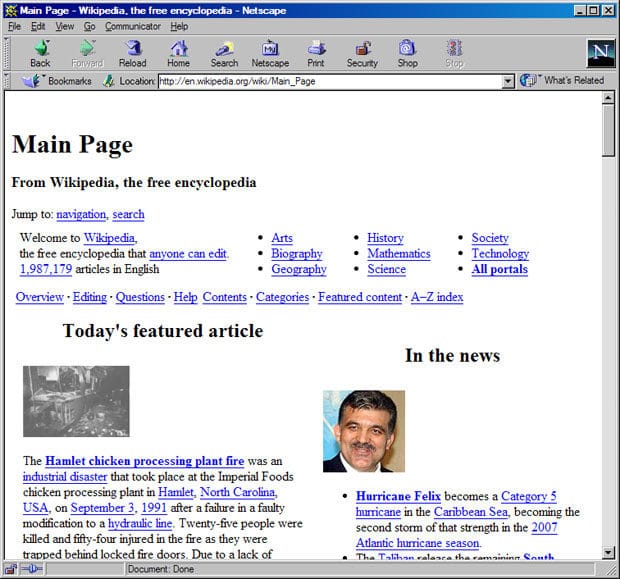
Netscape Navigator
By that time there was no significant competition to Netscape Navigator and according to statistics it was holding more than 90% of usage share back in 1994. However with the arrival of Microsoft Internet Explorer the trend of Netscape Navigator died and today it’s only a legend.
Internet Explorer
Microsoft also came in to the browser battle with their Internet Explorer in 1995. When it comes to functionality it was almost same as Netscape Navigator, but they were having other advantages. Mainly it came with the popular operating system Microsoft Windows. hence users won’t have to install a separate web browser. And of course Microsoft always polishes up the product to deliver the maximum user-experience.
This setup initiated the world’s very first Battle of the Browsers. On one side Netscape Navigator was competing with their innovative new technologies such as SSL, JS and even with the advantage of “Be the first to come”. In another side Internet Explorer was competing to gain more territory with Operating System support, market reputation and ease of use.
Microsoft Internet Explorer was able to win this war and Netscape Navigator had to retreat. By 1996 the popularity of Netscape Navigator started to decline while popularity if Internet Explorer was booming. After that Internet Explorer could hold his ground for many years without having any significant competition. The development was continuously going on and many versions of Internet Explorer came with Windows Operating System. This is the most powerful regime ever in history of Battle of Browsers.
Opera
Opera browser came in to the picture in the peak of browser battle and offer competitive feature to the internet users. Especially they were developing web browsers for mobile phones. The most interesting thing about opera browser is its performance. By that time speed of networking infrastructure was around 28 Kbps and managing the bandwidth was critical. Opera was offering the feature ‘fast rewind’ which allows the users to go to previous pages quickly without wasting data.
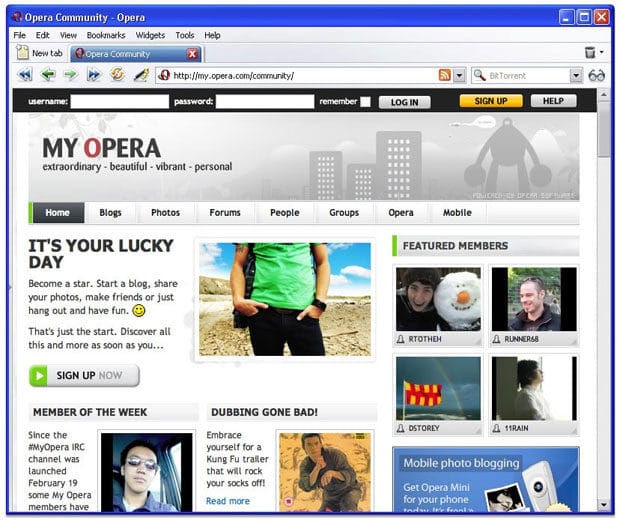
Opera Browser
However, opera never was able to gain a significant usage share. It was always fluctuating around 2%. I still recommend this as a very good browser if you are having slower internet connection. By the time I was using Dial up internet this was my favorite browser. But with the introduction to broadband internet the importance of Opera was not significant.
In New Millennium
Mozilla Firefox
The era of Internet Explorer was continued for many years and its users were satisfied with its capabilities. Mozilla Firefox is the very first browser which shows some new possibilities to the Internet Explorer users becoming a new competitor in battle of browsers.
The Mozilla Foundation was initially launched by Netscape, the early competitor in the battle of browsers. The idea was to set up the environment to develop open source web browser to compete with Internet Explorer. It gave birth to Firefox and first version came in 2004. This came in with lots of new features such as Tabbed browsing that allows you to open many web pages in the same browser window, spellchecking, bookmark manager and download manger. Furthermore the browsing engine of Firefox is very fast due to the technologies like ‘pipelining’. With all these Mozilla Firefox could gain a usage share of nearly 40% in 2011 and limit the share of Microsoft Internet Explorer to 21%.
Safari from Apple
Safari browser came with Apple Mac operating system. Safari was having the same advantage as Internet Explorer since it comes with a popular brand and operating system. Initial version of Safari came in 2003 and of course gained popularity among Apple Mac users. It was having fastest browsing engine which was even faster than Mozilla Firefox and providing lots of competitive features as well. However it was unable to gain a significant usage share due to its limited platform compatibility. Throughout years its usage share was fluctuating between 5-10%.
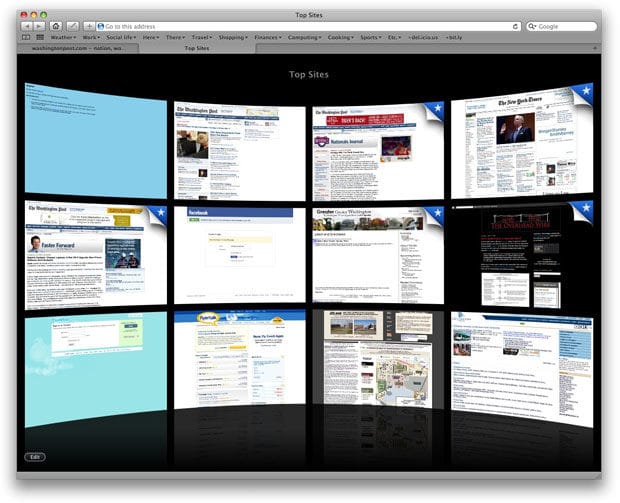
Safari Browser
Chrome from Google
Chrome was developed by the internet giant Google and became very popular with the massive online promotion campaign and competitive features. Chrome introduced the “Tabs On top” style screen arrangement which is very user-friendly. In addition to that Chrome engine was very fast and ranked as world’s fasted browser. Additionally most of the Google features came built in with the Chrome browser which was an added advantage to become even popular as a web browser.
Right after introduction its usage share hit the roof and most of the people believed that it will surpass the share of Mozilla Firefox as well. But according to the statistic in w3schools it’s still slightly behind the Firefox browser. Different sources come up with different browser usage statistics. I’d like to stick to w3schools browser statistics. In there you can see the browser usage share by browser and different version of the same browser as well.
Recently there was news reported by many online news sources saying that Google Chrome has surpassed the usage share of Mozilla Firefox.
Effect of the Browser Battle
The Battle of web browser gave lots of good things to the users. Competition is always good. The major factor that improved throughout the years was mainly user-friendliness and performance. Even in the very early time Netscape won the war against Nexus due to the user-friendliness and performance. Along with those lots of new technologies were introduced to deliver excellent browsing experience such as Java Script, Flash and Silverlight. Lots of updates came for HTML and browsers were fighting to be the first to support those especially with HTML 5. With the arrival of Mozilla Firefox, browsers went open source and through community development lots of interesting features were added to the browser. At the same time it opens the opportunity to make the browser cross platform compatible. Today we can install Firefox and Chrome in many operating systems and hardware platforms.
The Battle of browsers didn’t give only the white side. There are some problems that came with this war as well. The major problem is increased browser incompatibility. In other words different browsers interpret the same mark up in different way which is a major problem for web developers and confusion to internet users. This occurred due to proprietary technologies that used to make the interpretation faster by different companies. The problem continues even today.
I always see the Battle of web Browsers as a good thing. It gave lots of good things compared to few drawbacks. In the future the war will continue mainly between Firefox and Chrome. Result will always be beneficial for the users since both browsers come for free anyway.
Tags: #Browser #Web
